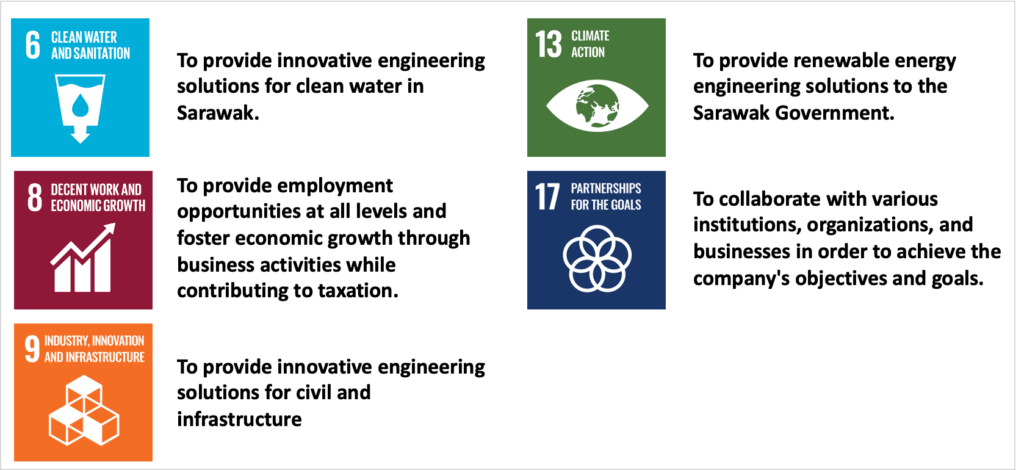COMMITMENT: SUSTAINABLE DEVELOPMENT GOALS (SDG) 2030

COMMITMENT: ENVIRONMENTAL, SOCIAL, AND GOVERNANCE (ESG)

ENVIRONMENTAL
This aspect focuses on a company’s impact on the environment. It considers factors such as carbon emissions, energy efficiency, waste management, pollution, resource depletion, and climate change. Companies that prioritize environmental sustainability often implement measures to reduce their ecological footprint, promote renewable energy, minimize waste, and adopt sustainable practices.
SOCIAL
The social component of ESG evaluates a company’s impact on society and stakeholders. It includes factors such as labor rights, human rights, employee well-being, diversity and inclusion, community engagement, customer satisfaction, and product safety. Companies that prioritize social responsibility may strive for fair labor practices, equal opportunities, positive community involvement, and ethical sourcing.
CORPORATE GOVERNANCE
refers to the system of rules, practices, and processes by which a company is directed and controlled. It encompasses the relationships between a company’s management, its board of directors, shareholders, and other stakeholders. The primary objective of corporate governance is to ensure that the company is managed in a way that maximizes value for shareholders while also considering the interests of other stakeholders and upholding ethical standards.
APPLIED: ESG & SDG

